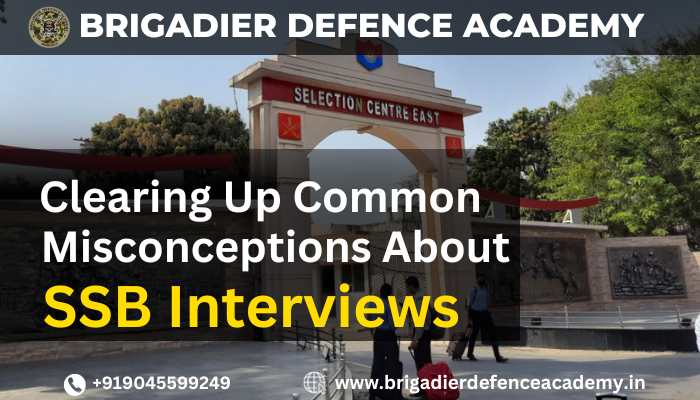Introduction
Understanding the importance of SSB interviews is the first step toward success in the selection process. In this comprehensive guide, we debunk prevalent myths surrounding SSB interviews, providing insights, strategies, and real-life examples to demystify the assessment process.
The Significance of Combined Defence Services (CDS): Uniting Forces for National Security
In the realm of military strategy and national defense, the Combined Defence Services (CDS) play a pivotal role in harmonizing the efforts of the three major branches of the Indian Armed Forces—the Army, Navy, and Air Force. Established to streamline coordination and enhance joint operations, the CDS has become a linchpin for ensuring the nation’s security.
Origins and Purpose:
The genesis of the Combined Defence Services can be traced back to the recommendations of the Kargil Review Committee in 1999, which emphasized the need for greater synergy among the armed forces. In response, the government established the position of the Chief of Defence Staff (CDS) in 2020. The CDS serves as the principal military advisor to the government and is tasked with fostering jointness in operations and promoting efficient resource allocation.
Obstacles and Potential Futures:
While the establishment of the CDS represents a significant stride towards jointness in the Indian military, challenges persist. Overcoming service-centric attitudes, integrating diverse cultures, and fostering a collective mindset are ongoing challenges. However, the CDS continues to evolve, adapting to emerging threats and technological advancements.
The Combined Defence Services stand as a testament to India’s commitment to a unified and robust defense apparatus. By fostering jointness, optimizing resources, and enhancing interoperability, the CDS plays a vital role in safeguarding the nation’s security and maintaining its status as a formidable force on the global stage.
Myth: SSB is Only About Knowledge
Contrary to popular belief, SSB interviews adopt a holistic approach. It’s not just about academic knowledge; assessors evaluate candidates based on a combination of cognitive, emotional, and social intelligence.
Myth: It’s Impossible to Prepare
Effective preparation strategies can significantly impact performance. From understanding the assessment criteria to practicing with mock interviews, aspirants can take proactive steps to enhance their readiness for SSB interviews.
Myth: Personal Experiences Don’t Matter
Individual stories play a crucial role in SSB interviews. Assessors are interested in personal experiences as they reveal aspects of a candidate’s character, decision-making skills, and resilience.
Myth: SSB Interviews are Predictable
SSB interviews are dynamic and designed to be unpredictable. This approach aims to assess candidates’ adaptability, quick thinking, and problem-solving abilities in real-time situations.
Myth: It’s All About Showcasing Perfection
Authenticity is valued more than perfection in SSB interviews. Assessors are keen on understanding the real personality of candidates, including their strengths, weaknesses, and areas of improvement.
The Psychology Behind SSB Interviews
Understanding the evaluative process is crucial. This section delves into the psychology behind SSB interviews, providing insights into what assessors look for in candidates.
The Importance of Body Language
Non-verbal cues are significant in SSB interviews. This part explores the nuances of body language, helping candidates convey confidence, openness, and other desirable traits.
Common Misconceptions About Group Tasks
Teamwork and leadership skills are assessed through group tasks. This section clears up common misconceptions and provides insights into excelling in collaborative assessments.
The Interviewer’s Perspective
Candidates benefit from understanding what assessors look for during interviews. This section sheds light on the interviewer’s perspective, offering valuable tips for successful interactions.
Success Stories: Debunking Myths Through Examples
Real-life experiences of individuals who successfully navigated SSB interview dispel myths and offer inspiration. These stories provide practical insights into overcoming challenges.
Navigating the SSB Interview Process
A step-by-step guide helps candidates navigate the it process effectively. From the screening test to the conference, this section provides a comprehensive overview.
Personal Growth Through SSB Interview
Beyond selection, it offers a transformative journey. This part explores how candidates experience personal growth, resilience, and leadership development.
Conclusion
This comprehensive guide aims to clear the fog surrounding SSB interview, providing a new perspective for aspirants. By dispelling myths and offering practical insights, candidates can approach the assessment process with confidence, authenticity, and a deep understanding of what it truly entails.
FAQs
Q: Is it essential to be perfect in SSB interview?
Authenticity is more valued than perfection. Assessors appreciate candidates who are genuine and true to themselves.
Q: How can one prepare effectively for SSB interviews?
Effective preparation involves understanding the assessment criteria, practicing mock interviews, and enhancing cognitive, emotional, and social intelligence.
Q: Are SSB interviews predictable?
No, SSB interviews are designed to be dynamic and unpredictable to assess candidates’ adaptability and problem-solving skills.
Q: What role do personal experiences play in SSB interview?
Personal experiences are crucial as they reveal aspects of a candidate’s character, decision-making skills, and resilience.
Q: How can body language impact SSB interview?
Body language conveys confidence, openness, and other desirable traits, influencing assessors’ perceptions of candidates.







